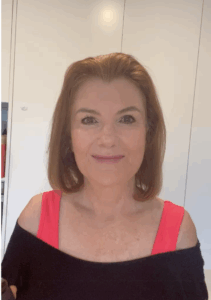The New York Times recently released an article entitled ‘We Could All Use A Health Coach’.
Health coaching is a modern career and one that was unheard of 30 years ago. In fact, down under, it’s still not commonplace, but respected bodies are working to change that. I’m proud to be a certified holistic Wellness & Weight Loss Coach and Menopause Practitioner for 40+ women. And to be able to use that qualification to help the ladies of MenoMe®.
I’m going to tell you exactly what that means, but first let’s talk about ‘The Pause Family’. Then we’ll move on to how a Coach & Practitioner can help you with natural pre-, peri- and post-menopause support, the signs of menopause and managing weight gain.
The Pause Family: Premenopause, Perimenopause, Menopause & Post-Menopause
Menopause, or more precisely pre-, peri- and post-menopause, are milestones in a woman’s life. Perimenopause also goes by the moniker of ‘menopause transition’, which means it doesn’t last forever.
With that said, many of us stumble into pre- and perimenopause. Technically, we’re premenopausal from the time of our first period, but what we’re referring to here is our 30s. This is when our sex hormones begin to alter, but the changes are barely perceptible.
Indeed, perimenopause is when most of the signs occur, as our hormone levels can be volatile at this time. So much so that some of us may wonder what’s hit us. Unfortunately, most women of our generation are not well educated about this life stage, and neither are many doctors.
The Percentage Of Women Who Experience Menopause Symptoms
And that’s okay if we fall into the percentage of women who don’t experience many of the common signs. But that’s the minority of us (approximately 20%). And the lack of knowledge that surrounds peri/menopause can have a devastating impact. Why? Because while the physical symptoms can be disruptive, it’s the mental health links that have the potential to be unnecessarily calamitous.
The emphasis here should be unnecessary because, with the right knowledge and support, strong words shouldn’t be part of the conversation.
Percentage of Women Who Experience:
- No symptoms 20%
- Moderate symptoms 60%
- Severe symptoms 20%
Source: Australasian Menopause Society
Had You Heard Of Pre- or Perimenopause Before You Came Face To Face With It?
Our research at MenoMe® has shown us that a lot of women don’t even realise pre- or perimenopause is a ‘thing’, let alone the average age to expect them.
Which, for the record, is around the mid-40s for perimenopause, but it can occur in our 30s. And before this, there’s premenopause, which begins around 35, when our progesterone levels tend to drop.

If this is your story, I can relate because it’s my story too. Even though I’m a women’s health researcher and author in the women’s health genre.
In fact, I’ve worked in women’s health and beauty for most of my career. As such, I’ve had the privilege of meeting some of the top women’s health experts from around the world.
I also spent several years undergoing fertility treatment, and I can’t remember the terms pre- or perimenopause ever being mentioned. Menopause yes. But in a way that made it seem like it was decades away and with no reference to post-menopause.
Even women who were post-menopausal and had walked the journey didn’t mention it, not even in hushed tones.
Connecting The Dots
While the taboo of menopause is dissipating somewhat, we still have a long way to go. As a result of living my own perimenopause story and being a researcher, I wanted answers. I needed to know why I was in pain, felt like I was going loopy and couldn’t cope with life. The medical profession couldn’t provide any answers even after countless CT scans and blood tests.
The more I delved into it, the more information I found on the links between lifestyle factors, holistic practices and minimising symptoms of the menopause transition.
Consequently, I realised there was a serious gap in the market. So I hit the digital books and trained to be a wellness coach, it was the best I could do at the time. Then, when it became available, I trained as a menopause practitioner with Dr Wendy Sweet, PhD.
So What Exactly Is A Health Coach?
“I predict that Health Coaches will become one of the major providers of healthcare and primary care in the near future. One, because they’re trained in lifestyle medicine. But secondly, because they know how to bring about behavioural change.” – Dr Glen Davies, NZ Primary Healthcare GP of the Year
The Kresser Institute defines a health coach below:
The Pillars of Health Coaching
- Motivational Interviewing(MI)
- Positive Psychology(PP) and/or Appreciative Inquiry (AI)
- Stages of Change(SOC)/Transtheoretical Model (TTM)
“Health coaches are experts on human behaviour, motivation, and health. They are ‘change agents’ who help their clients set, then achieve health goals and build new habits.”
As you can see, health coach foundations are based on behavioural and positive psychology. From there, we’re trained in healthy dietary habits, weight gain and loss; mindset, emotional and mental health, plus lifestyle health habits like sleep and stress management.
A menopause practitioner’s training dives deep into the physiology of menopause as well as lifestyle medicine and behaviour psychology.
How Can A Wellness Coach & Menopause Practitioner Help You?
As a wellness coach and menopause practitioner, I’m like a support system with a lot of knowledge about your time of life. And I understand you’re the expert of your own body, so I focus on you as a whole person.
For example, you may be starting to experience menopausal changes.
Knowing that, I can point you to lifestyle changes and evidence-backed natural solutions that may help. Accordingly, I may ask you further questions to find out how physical signs may be affecting your emotional health.
If weight gain is a problem for you, I can take a look at what is happening in your life overall.
For example, menopause signs may be causing you to turn to comfort food. In turn, this might be leading to inflammation in the body and biological processes that cause weight loss resistance.
As a coach and practitioner, it’s my primary role to support you by providing knowledge, accountability and motivation. And to offer you natural menopause support.
Functional Medicine
Along with health and menopause coaching, I’ve spent hundreds of hours studying the science of female hormones through functional medicine. Both modalities have shown me how healthy living can transform your menopausal experience.
At MenoMe®, our focus is on supporting you with clinically tested solutions, education and empowerment.
This encompasses:
- Natural solutions proven by science
- Lifestyle health habits
- Healthy dietary choices
- Mindset
- Weight loss
- Stress management
- Emotional and mental health
And that’s why you know we’ll always have your back at MenoMe®.
You can rest assured that our natural menopause supplements are natural, safe and clinically proven. In addition, all of the information you’ll find here is evidence-backed.
Science has shown that we can help you manage your menopause with the power of Mother Nature.
So if you need extra help don’t hesitate to get in touch here. Plus we now offer Meno-Coaching where you can purchase 30 or 60-minutes with me. Click here.
Image by mohamed Hassan from Pixabaycer




